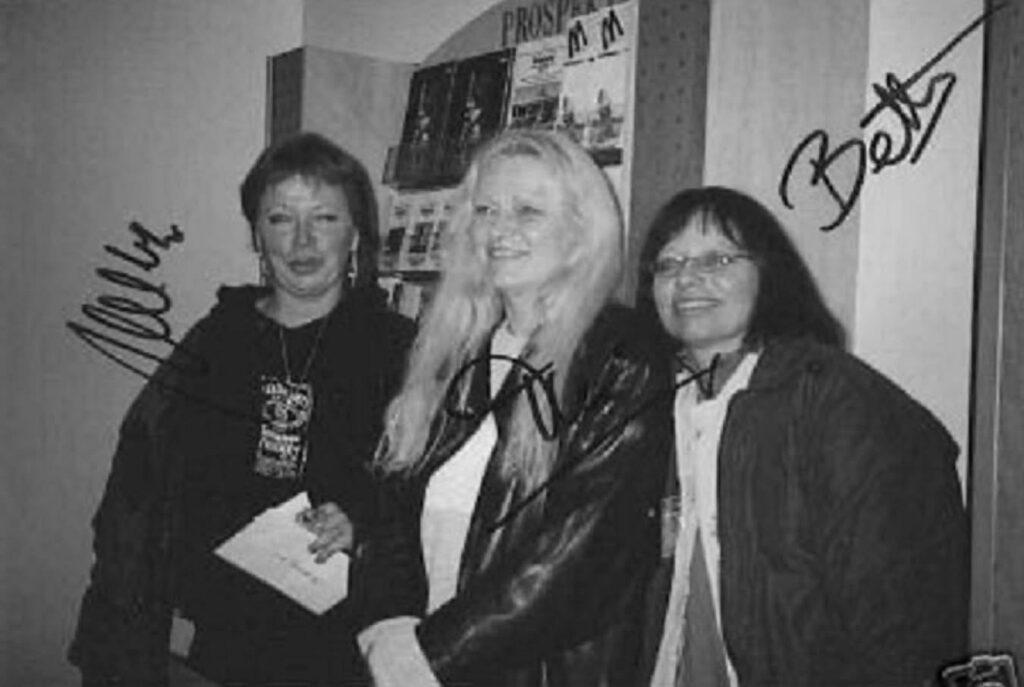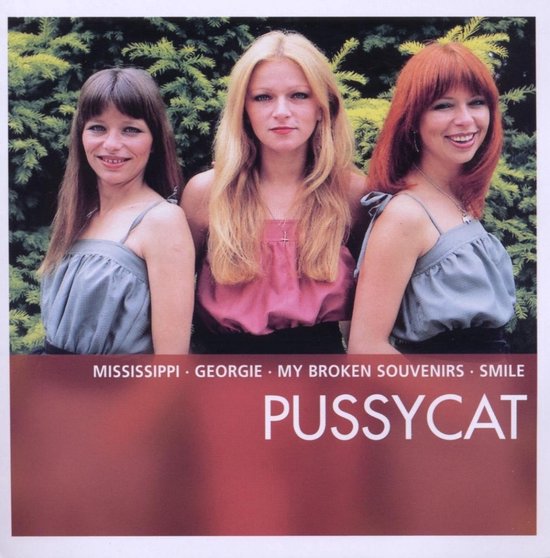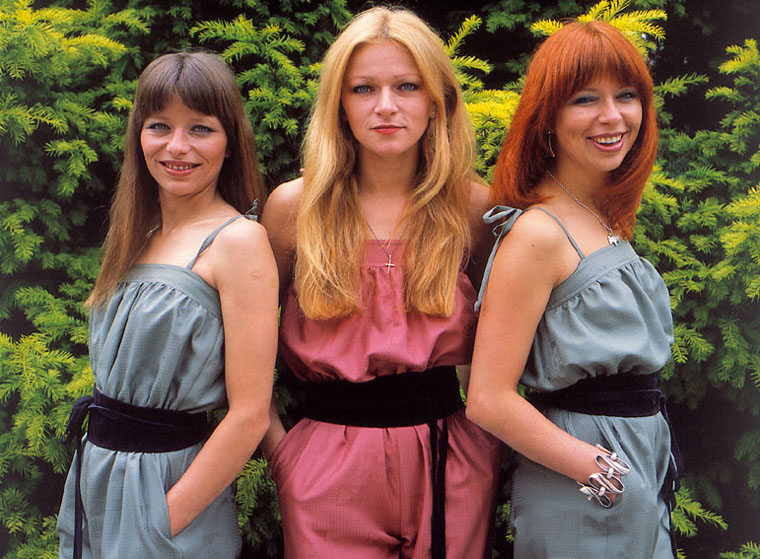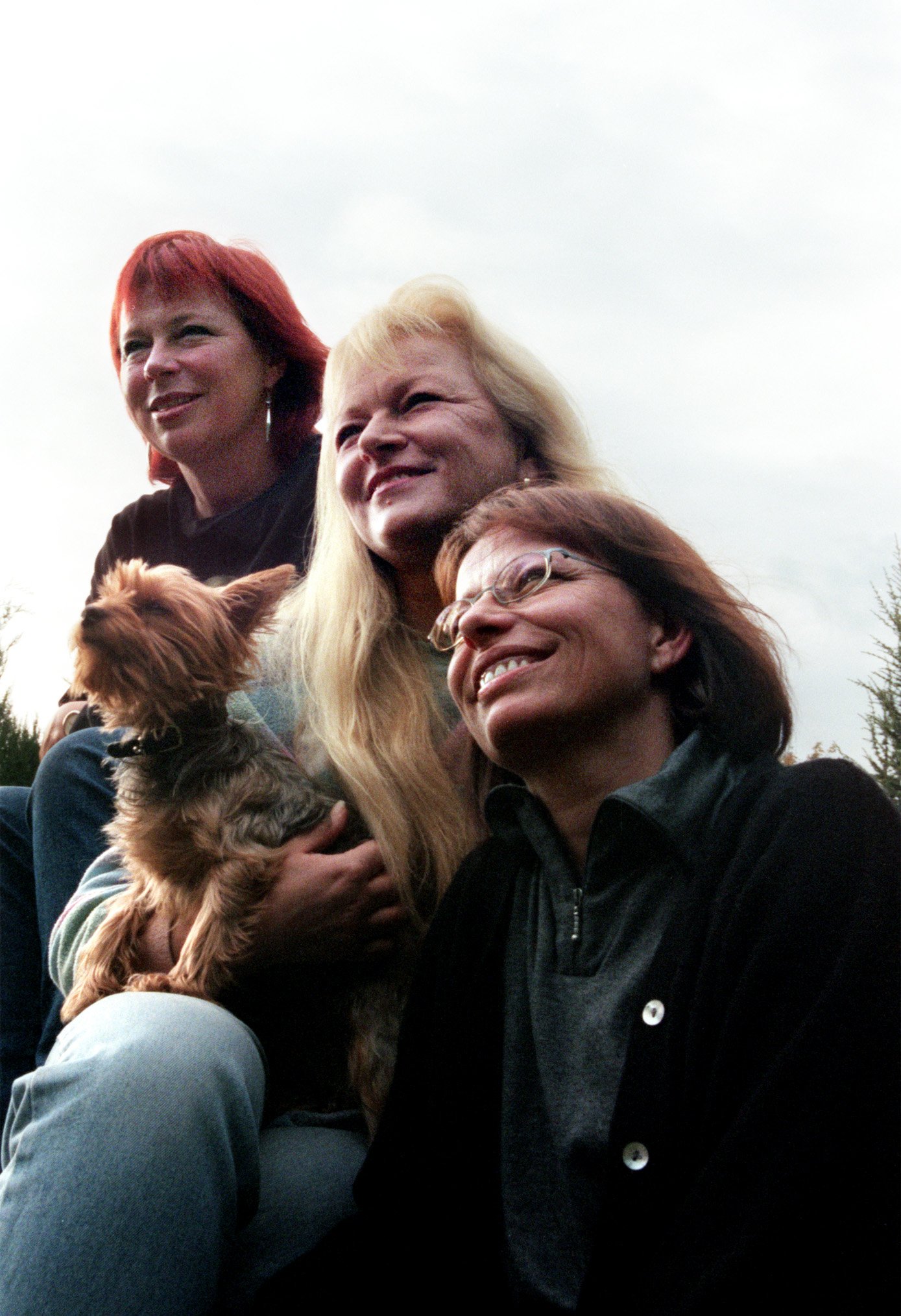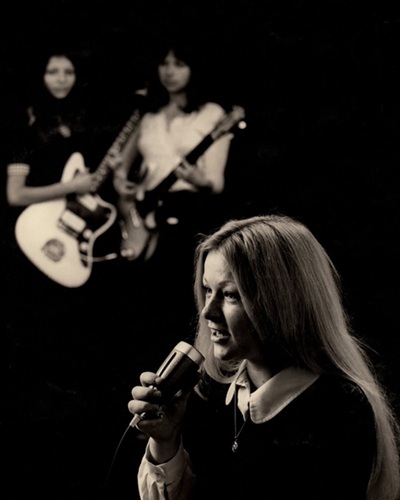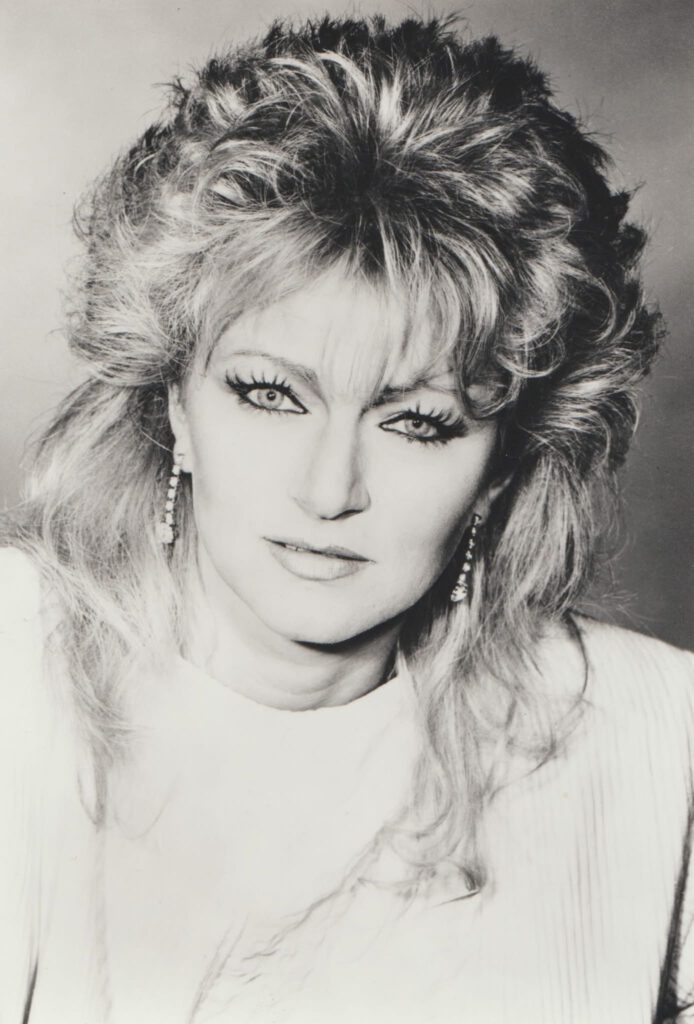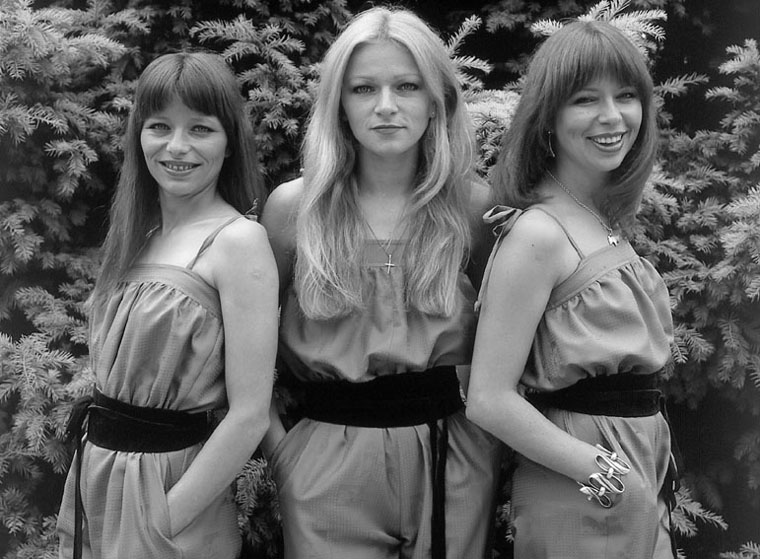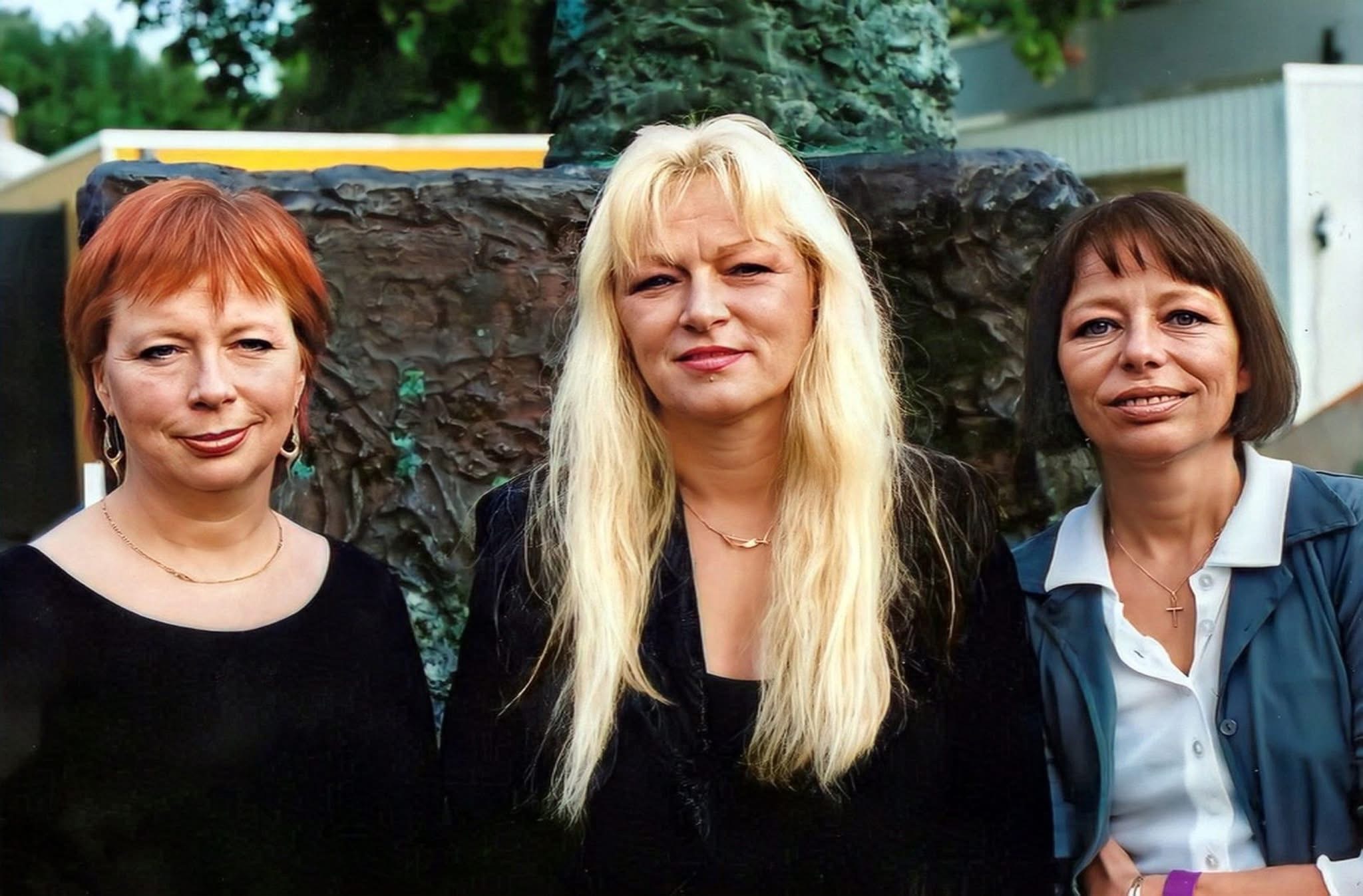Auf Deutch | In het Nederlands | In het Nederlands II | In English




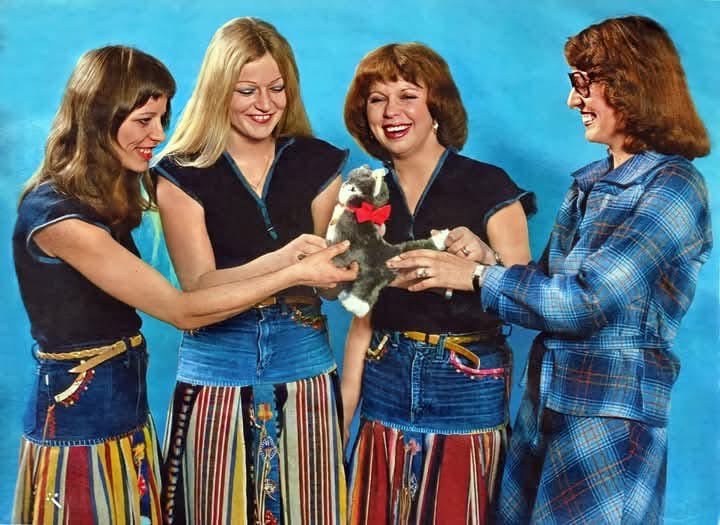
The name Pussycat will forever be linked to the 1975 number 1 hit Mississippi.
Although the band from Limburg, featuring sisters Toni Willé, Betty Dragstra and Marianne Veldpaus, had many more hits the following years, Mississippi is still considered to be the band’s undisputed masterpiece. To give an indication: the single sold seven million copies worldwide. Furthermore, it was not only a number 1 hit in The Netherlands, but also in the UK, Germany, Austria, Switzerland, Scandinavia, Brazil, Australia and New Zealand, and in South Africa the single remained in the charts for no less than 129 weeks! Almost thirty years later, Toni, Betty and Marianne will admit that “Mississippi has made all our dreams come true. Everywhere the three of us go, we still get asked to sing it. Over the years we may have sung the song about then thousand times, but we never get tired of it!”

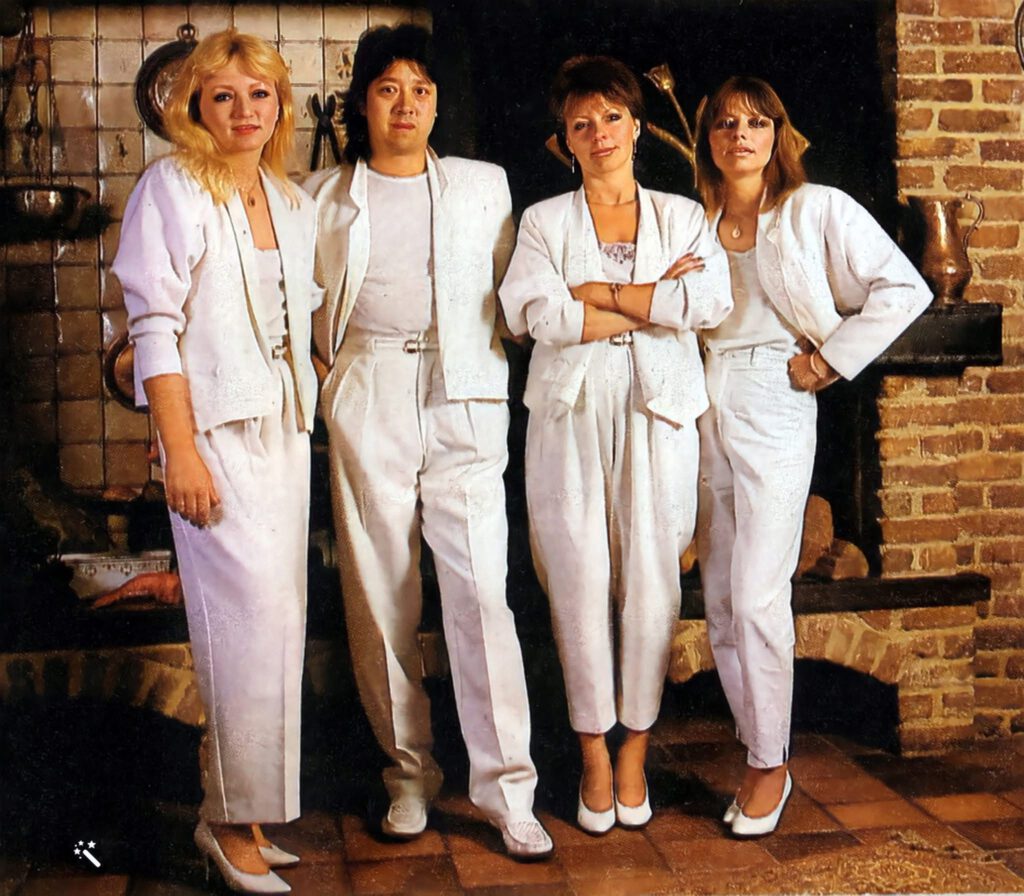
“Our father died three days before Toni was born, when Marianne was two years old and Betty was only one. He suffered from Hodgkin’s disease, for which there was no cure yet in those days. We lived in Brunssum. Our mother re-married a Polish miner five years after my father’s death.
Daddy Kowalczyk was a real father to us. One day, at Sinterklaas, he bought all three of us an acoustic guitar, costing about Fl. 40,- each. It was a really expensive gift, especially since he had to buy three guitars at the same time! We were six, seven and eight years old. By then our family had moved to Treebeek, where mister Keuzekamp taught us how to play the guitar. We started calling ourselves the Singing Sisters and we performed during carnival and talent scoutings. It was during that time that our characteristic close harmony style came into being. Our repertoire initially consisted mostly of German pop songs.
However, that ended with the arrival of The Beatles! This was the kind of music we wanted to make! Mister Keuzekamp was replaced by 18-year-old Werner Theunissen, whom we got in touch with through an ad in the paper. He was a substitute truck driver, who offered guitar lessons to make some extra money. He taught us a lot of new chords.

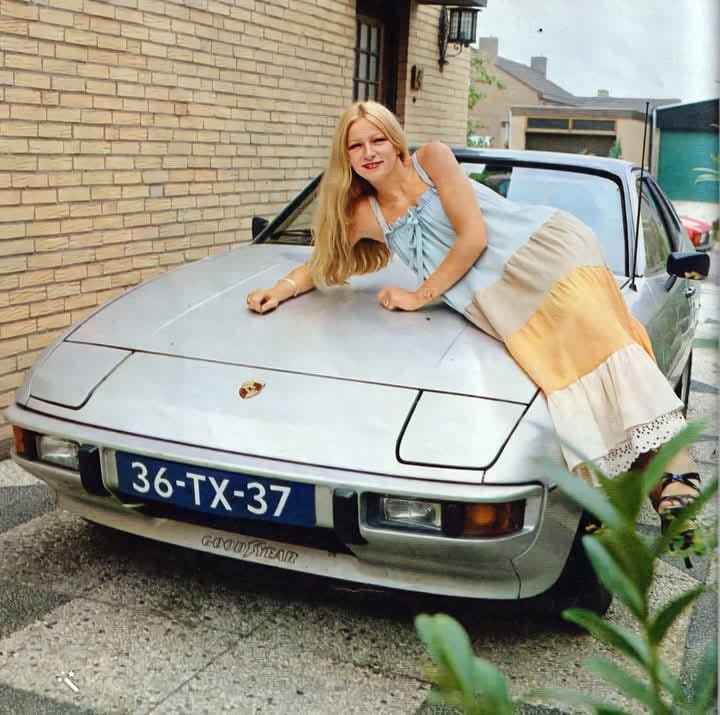
It was then that we became a proper girl band, with Betty on solo guitar, Marianne on bass, Toni on vocals and a girl living nearby on drums. We practiced in the garage under the house: a concrete box, where it was freezing. But we did not care. We just put on our gloves and continued playing! We called ourselves The BG’s (Beat Girls) From Holland, but people also referred to us as the Dutch Bee Gees. We played Bee Gees covers and a lot of Motown hits. We had the time of our lives, and even performed in the French part of Belgium.
Our mother joined us wherever we went. Our parents bought us a minivan and equipment, which must have cost them a fortune. We can safely say that without them we would not have come this far. They are both dead now.”
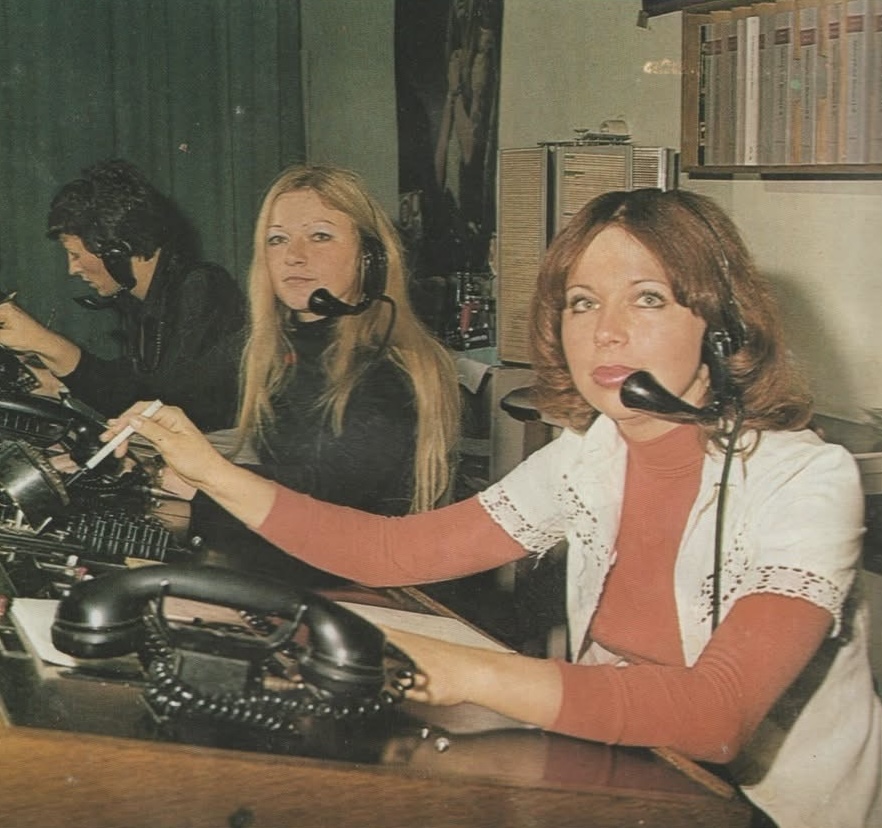
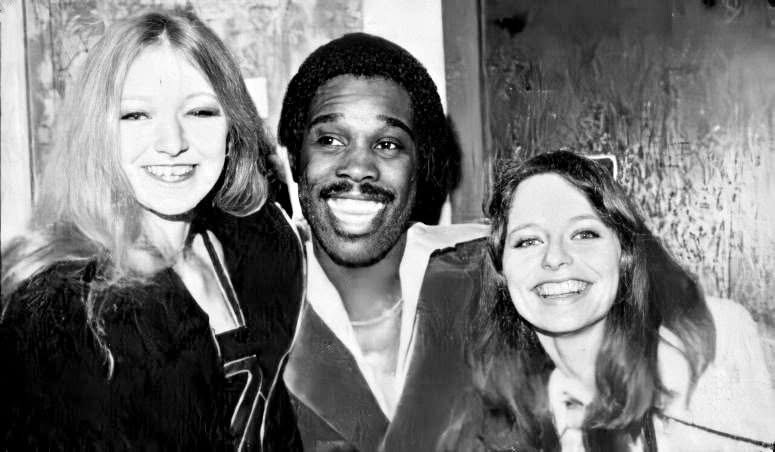
“A few years later, we had guys join the band and decided to change our name into Sweet Reaction. Things started to become more serious, but we never thought: ‘now we will become world-famous’. We just had a great time playing in the band. In the meantime, Werner kept writing songs for us, all for three-part vocals. One of those songs was ‘Tell Alain’, which we released as a single in 1973 on Telstar, Johnny Hoes’ record label. Although the single was not very successful, we ended up performing it in Eddy Becker’s The Eddy-Go-Round Show. One of the other guests on the show was Demis Roussos, who had a number 1 hit with ‘My Friend The Wind’ at the time. The Belgian band Soulful Dynamics had a big hit with ‘Mademoiselle Ninette’ as well. With their Belgian producers we recorded ‘Come Back My Dream’, the successor of ‘Tell Alain’. Once we were already successful as Pussycat, Johnny Hoes released a third Sweet Reaction single, called ‘Daddy’. Underneath the band name on the cover it said in glaring letters: now Pussycat! Toni went on to record a solo single called For You / Let Me Live My Life Again under the moniker Sally Lane. It should have been Shelley Lane, but the French producer misprinted the name on the cover. But that single was not a big success either.”

“Mississippi was another song Werner composed for us. It was written in the same vein as Massachusetts by the Bee Gees, a song he really liked. We started to play the song live and a few months later we sent a demo of it to EMI Bovema in Heemstede, who were immediately interested. We ended up re-recording Mississippi in the EMI studio in Heemstede. To be honest, this did not really work out as planned. Our producer at the time, Eddy Hilberts, had just recorded a lot of country records. So when we re-recorded Mississippi, it had a country-like twist. Personally, we did not have anything with country music, although we liked country rock like The Eagles.”
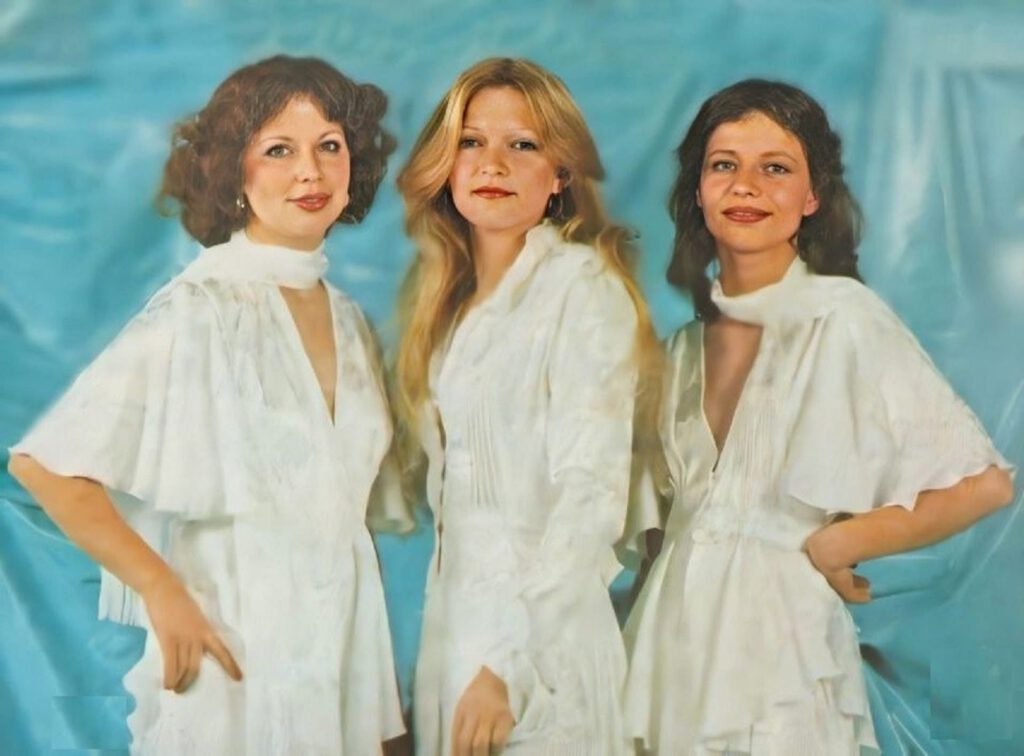
“Anyway, Mississippi was released as a single in April 1975. Initially, it did nothing, absolutely nothing at all, until Meta de Vries started playing it. She thought Pussycat was an English band. Funnily enough, in the UK they thought we were an American band, which I think is a major compliment!
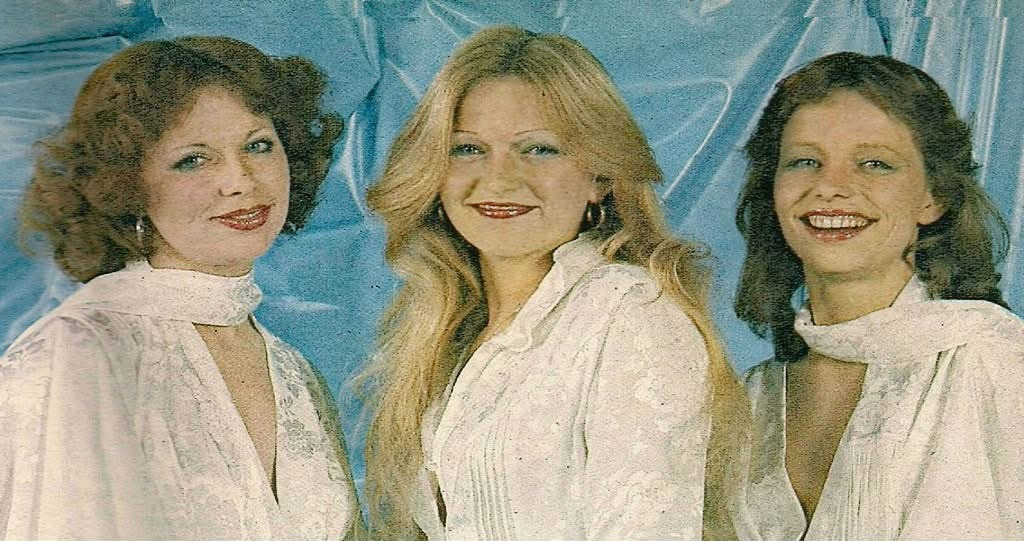
“Our lives went in overdrive. Toni and Marianne still worked as typists for DSM, but were unable to maintain their jobs. We were dragged all over the place, went from one show to the other. We performed in every part of The Netherlands, not knowing the first thing about anything. Luckily, our record company got us in touch with manager Jan Buys. We really needed a manager, for Mississippi was not only # 1 in The Netherlands, it was also released in Germany, where it ended up in the number 1 spot in no time, after which things started to change even more.”

“Oddly enough, at first they wanted to release Mississippi in neither Germany nor in the UK, because there was a lack of interest.
Eventually, the single was released in the UK on Sonet, a small record label. The local promoter walked her feet off to get the single going, and she did! In the fall of 1976, the single was number 1 in the UK charts! We will never forget the moment we got the news. We were in the studio, recording a Christmas song. It was a great moment, especially when you consider that Pussycat was the first Dutch band with a number 1 hit in the UK.

Mississippi remained in the number 1 spot for four weeks. We had to travel to the UK every week for a live performance on Top Of The Pops. In the UK the Union for musicians was very active. To protect its members the union had determined that foreign artists were obligated to hire English musicians, particularly for live radio and TV performances. So we had to hire musicians every time we went there. This was quite scary, for a lot can go wrong with live TV, but luckily for us nothing weird happened.”
“In addition to The Netherlands, Germany and the UK, Mississippi was also a number 1 hit in Austria, Switzerland, Norway, Brazil, and the list goes on! We visited most of those countries. Unfortunately, the song would never become a hit in the States, because our name has a certain connotation there. However, the song was covered by a number of American artists, such as Barbara Fairchild and Lucille Starr. But Mississippi did not make us rich, for we had to divide the money between too many people.”
“Soon after Mississippi, we had another hit on our hands in both The Netherlands and abroad with Georgie. It was followed by Smile and My Broken Souvenirs, which also became number 1 hits in the Top 40. These songs were translated into German for single release in Germany. Germans are very chauvinistic, so they want to listen to songs in their own language. We also released a German version of Mississippi and, although the lyrics were not very good, it sold a lot of copies. The German version was in the charts simultaneously with the English version, but it did not do as well.
In 1977, we won a Goldener Löwe in Germany and we were awarded an Edison and a Silver Harp in The Netherlands. With Same Old Song and Doin’ La Bamba we were able to get a taste of the old Motown-songs once more, which was great fun, and our fans loved it! Doin’ La Bamba was a huge hit in 1980. We even released an extended version of it, for it was the era of disco. However, the timing was off, so to speak. The single should have been in the stores by carnival, but was released in July. Nevertheless, it still went to number 6 in the charts! Shortly after this, NCRV broadcast a Pussycat special on TV.”

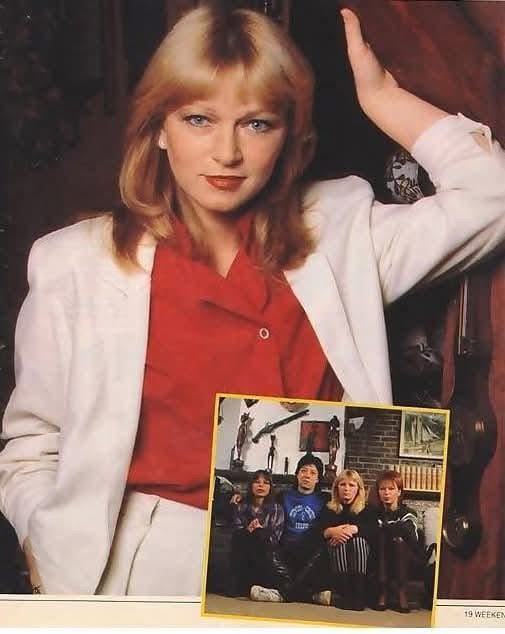
“The particular country sound in our songs certainly has to do with our voices, which contain a country-like warmth. But we can just as easily sing jazz or black music, preferably old-fashioned soul. In 1981 we got a new producer, Pim Koopman, who was partly responsible for our change of sound. In the meantime, family life started to take effect within the band. Betty had a little kid and so had Toni. This was partly the reason we were unable to accept invitations to visit Japan, Australia and Singapore, although we did manage to schedule a one-month trip to South Africa.”
“More and more artists started to perform with a tape instead of a backing band. This was a lot cheaper and thus more attractive for venue owners. It was no longer feasible for us to perform with a whole band. With pain in our hearts we parted company with our backing band and started to perform with a tape, which reminds me of a great story. We were once booked for a show on one of the ferries to the UK. It was quite a long way from the back of the venue to the stage. As we were standing in the back of the venue, they already started the tape! So we had to run towards the stage, and started singing three lines into the song! Afterwards we had a big laugh about it, but at the moment it happened we thought: ‘Oh dear, this is all wrong!’. We performed with a tape for almost two years, but one thing led to another and in 1985 we decided to quit.”
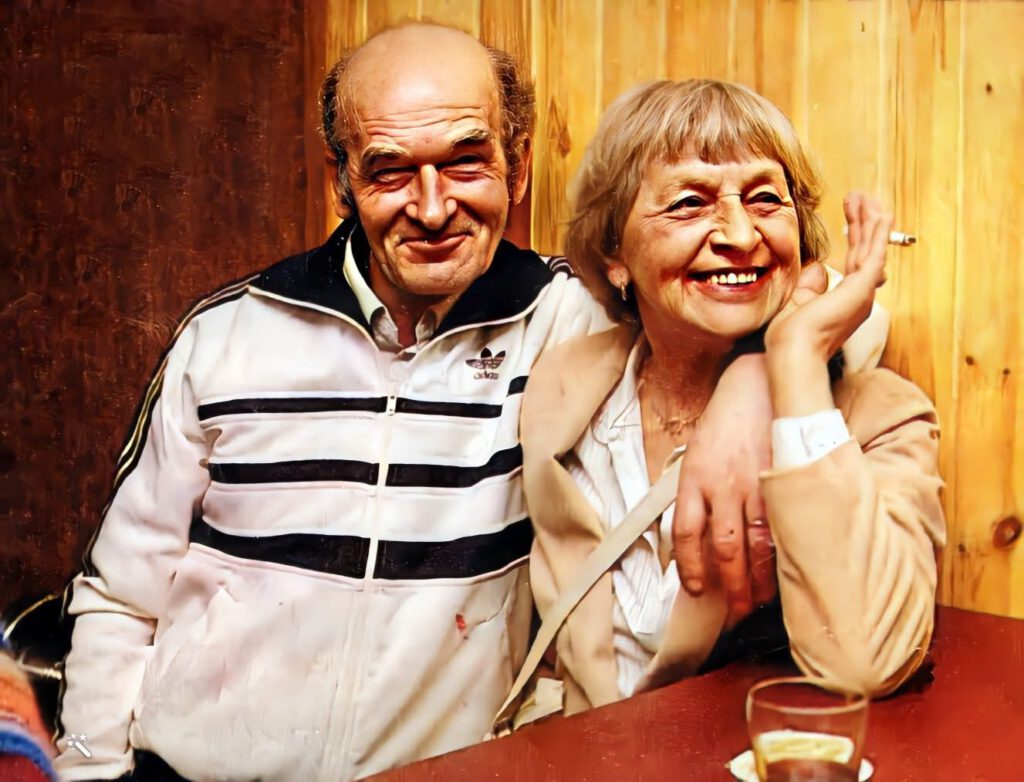
“After we quit the band, we suddenly had a lot of free time on our hands. Marianne has become the owner of a well-attended bar in Brunssum, while Betty is totally focussed on her family. Toni, who has both a son and a daughter, is the only one who has pursued a professional career in music. She has released a number of solo albums and recorded duets with artists like Marco Bakker, Benny Neyman, Danny Vera and the Major Dundee Band. Especially pop journalist Jip Golsteijn was very impressed with Toni’s duet It Turned Out To Be You with Major Dundee Band singer Dick van Altena.”
“For the last ten, twelve years, Toni has mainly performed in Germany. However, the Dutch fans are eager to see her perform again as well, so she has now joined Dutch booking agency Dutch Artist Management. We do occasionally still sing together in our hobby band Alleycat, but just for fun. However, since it has become known that Toni will start performing again in the Netherlands, requests for Pussycat performances are pilling up. As it turns out, the media hasn’t forgotten us either! Besides Single Luck, which focuses on the success of Mississippi, we also get requests for interviews and shows. Although we are certainly willing to accommodate those requests, we will only do the things we like. This means that we might do the occasional Pussycat show, but there will be no real comeback. As it looks now, we will limit our singing to our hobby band and to birthdays and family parties.
Are we still going to sing Mississippi? Well, I guess we have no choice!”

In the following years, the sisters did perform again, however, this time under the name Anycat. In 1999 they decided to make a comeback under their old name Pussycat. It was the same year in which Doe Maar also got back together for a short time, unrelated. Initially, the only intention was to perform, although for a while there were thoughts of releasing new material to be written by Werner Theunissen. However, new records were not released. They still performed as Pussycat through 2001.
In 2001, 25 years after the success with “Mississippi”, the compilation album 25 Years After Mississippi was released and reached the charts. It was listed in the Album Top 100 for seven weeks. That year saw several more reunion performances. In 2004, they released the box set, The Complete Collection, which consisted of three CDs and a DVD.
In 2005, they recorded the single “Somewhere Someone” with the Dutch country band Major Dundee, which was also included on Major Dundee’s album, Young Gods. In 2007, they gave their background vocals to the Dutch language reggae cover of “Mississippi” by Dennis Jones. In June 2023, there was an album released with previous unreleased song demos of the band from the year 1983, with the title Unreleased Demos 1983.

On 21 June 2021, Lou Willé brought out a book about Pussycat, together with Harm Peter Smilde; De Mississippi stroomt in Limburg.
In 1976 – 45 years ago now – Pussycat’s song Mississippi made a real triumphant tour around the world. Pussycat was the first Dutch band to reach number one in England. Even today, entire tribes of people (from the Netherlands and all over Europe to New Zealand, South Africa and Brazil) can still spontaneously sing along to their song Mississippi. That single became a big hit in fifteen countries and reached number one in nine countries. Their success led to more hits and did not come out of the blue. They worked hard for years to reach the top. This book tells the story of Pussycat, a band of down-to-earth Limburgers who, despite their fame, always remained themselves. Furthermore, Pussycat, the Mississippi flows in Limburg gives a good picture of the seventies through the many special photos and unique images, when pop music was still in its puberty. Guitarist Lou Willé also gives the reader a glimpse behind the scenes of the success. Lou Willé (Semarang, 1950) was co-founder and guitarist/singer of Pussycat. He was with the band from the very beginning to the end. From 1972 to 1992 he was married to lead singer Toni Willé.
On 28 June 2024, Betty Dragstra died at the age of 72.



